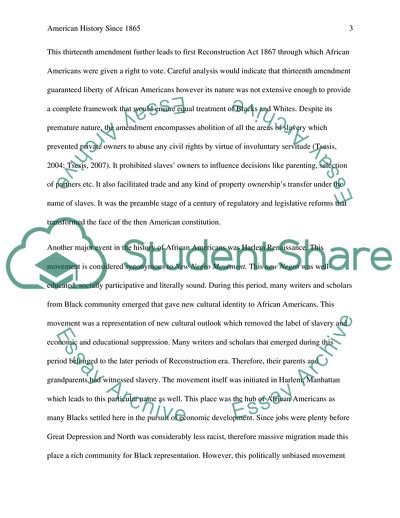Cite this document
(African American History Essay Example | Topics and Well Written Essays - 2000 words, n.d.)
African American History Essay Example | Topics and Well Written Essays - 2000 words. https://studentshare.org/history/1798206-american-history-since-1865
African American History Essay Example | Topics and Well Written Essays - 2000 words. https://studentshare.org/history/1798206-american-history-since-1865
(African American History Essay Example | Topics and Well Written Essays - 2000 Words)
African American History Essay Example | Topics and Well Written Essays - 2000 Words. https://studentshare.org/history/1798206-american-history-since-1865.
African American History Essay Example | Topics and Well Written Essays - 2000 Words. https://studentshare.org/history/1798206-american-history-since-1865.
“African American History Essay Example | Topics and Well Written Essays - 2000 Words”. https://studentshare.org/history/1798206-american-history-since-1865.


